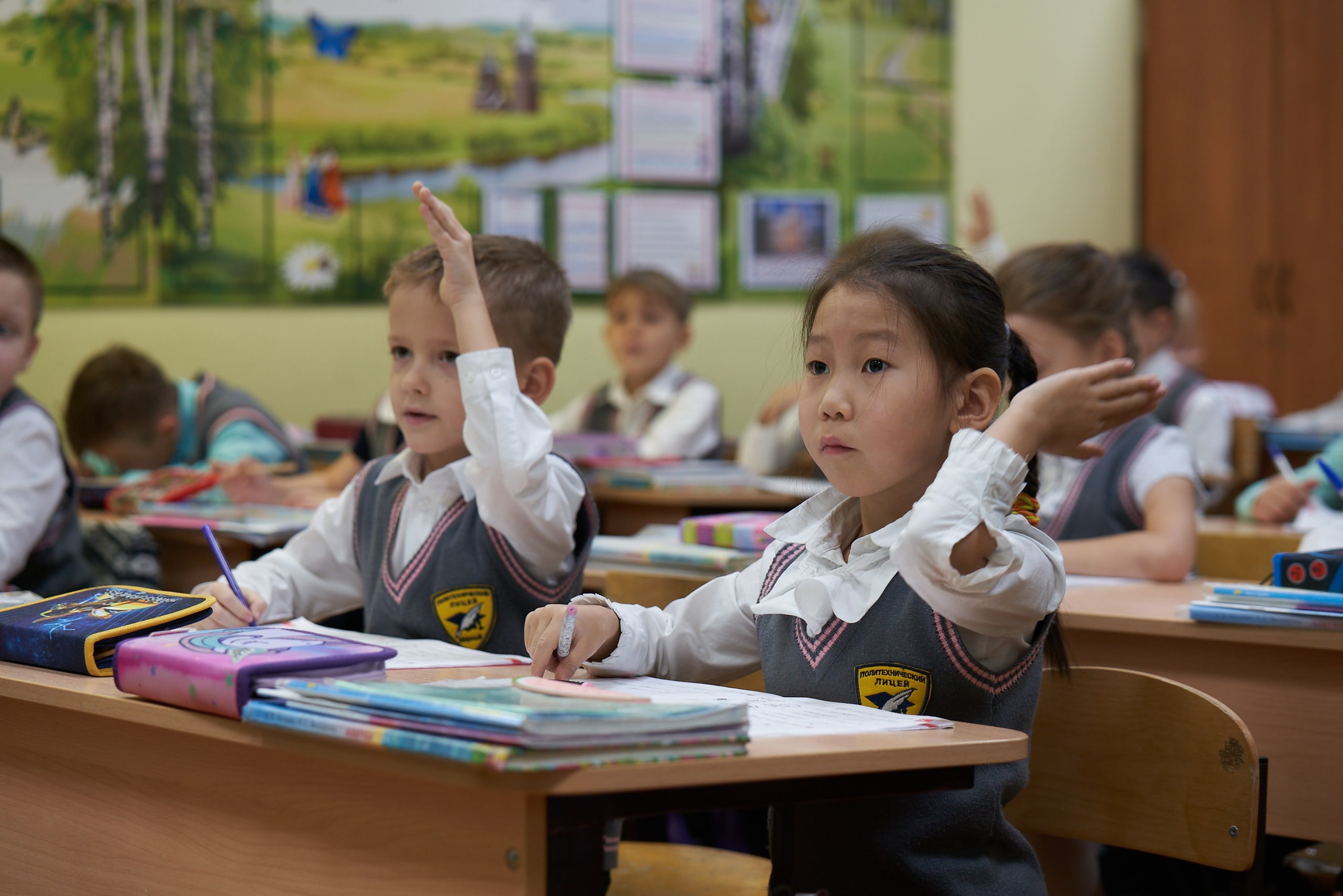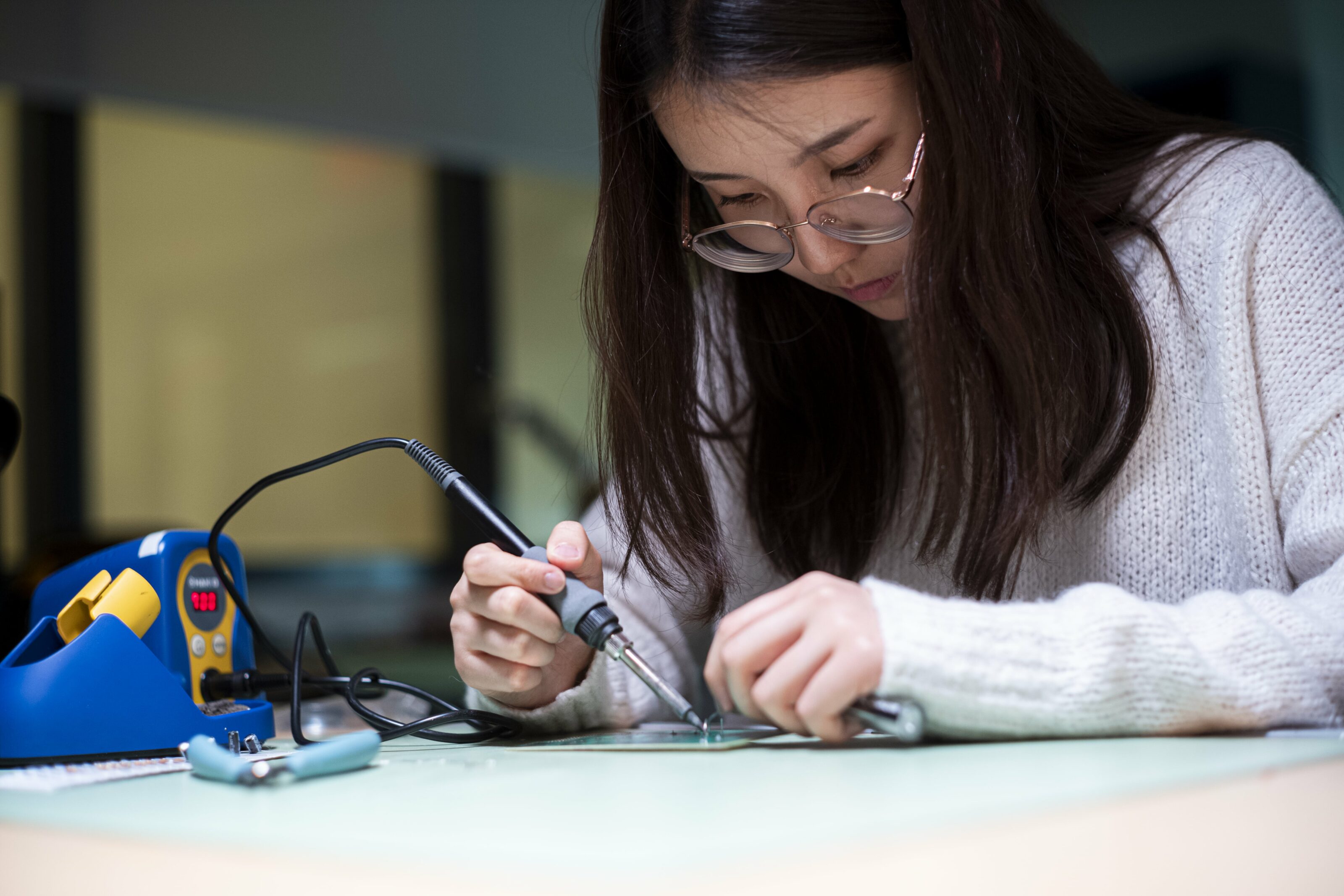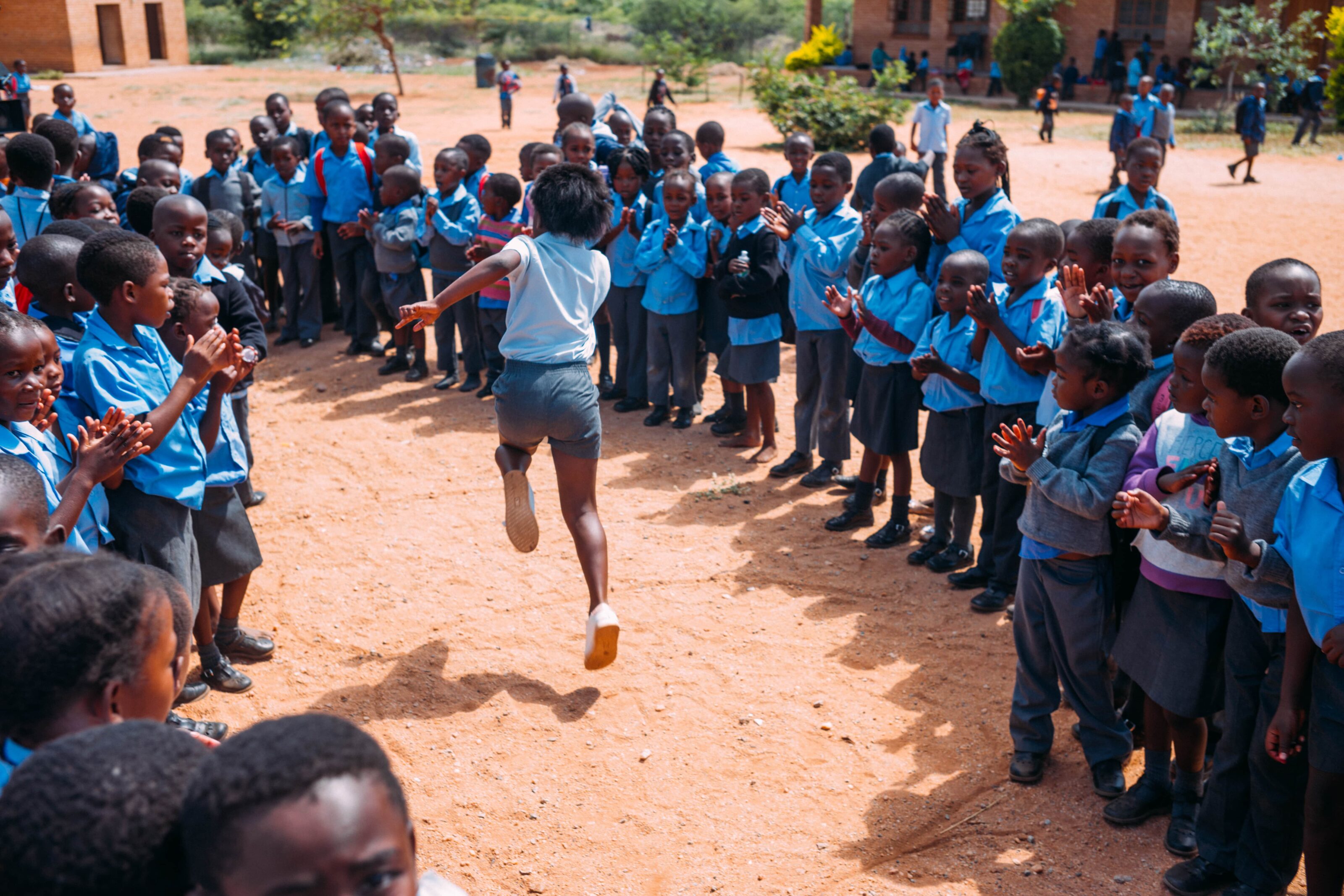Education: A Lifelong Gift from the World of Diamonds
See how from primary schooling to STEM, your diamond contributes to education programs around the world that empower women, children and entire communities.

“Learning is a treasure that will follow its owner everywhere,” declares a wise and ancient Chinese proverb. And when diamonds are extracted from deep within Earth’s core, it is only natural that they should give something back to the land and communities they come from— many of which are among the most remote in the world.
Many diamond mining companies including De Beers Group, Lucara, RZM Murowa, Rio Tinto, Arctic Canadian Diamond Company and Petra Diamonds have also contributed to programs that offer scholarships and financial assistance to help young people pursue their educational—and ultimately their career—dreams.
In 2019, more than forty scholarships were awarded by Arctic Canadian Diamond Company to students in the Northwest Territories (NWT), with a further three given to indigenous students through the sustainable scholarship fund run by the Yellowknife Community Foundation; 16 young people from the Northwest Territories have received scholarships from this sustainable scholarship fund to date.
For the past eight years, Rio Tinto has also funded scholarships for men and women seeking qualifications in mining-related areas, contributing more than $200,000 to scholarship funds. Plus, in 2019, Rio Tinto Diavik also announced a new $2,000 scholarship for women in the NWT and Kitikmeot region to pursue post-secondary education in STEM subjects.
“There was an obvious growing need for people to enter into the STEM fields,” says Bronwyn Watters, President of the Yellowknife Community Foundation. “Traditionally this is a male-dominated environment and this is beginning to break away. But we wanted to give an extra bit of incentive for women to become a part of the picture.”
The scholarship has been created to assist any woman applying in a STEM field who is and has been a resident of NWT or the West Kitikmeot region of Nunavut for at least half their life.
Winter Bailey, acting Manager of Communities and Communications for Rio Tinto Diavik Diamond Mine, said this scholarship is in line with Rio Tinto’s inclusion and diversity initiatives.
“Rio Tinto has ongoing efforts to support women in the mining industry and this Northern women-only scholarship will directly support these efforts on a more local level,” says Bailey. “Ultimately,” she adds, “we want as many women to get involved in the mining industry as possible.”
Shahila Perumalpillai, Head of Equity and Inclusion for De Beers Group agrees that the future of work requires diverse skills with an increasing focus on STEM. “We all need to adapt,” she explains, “however, women are more likely to face barriers in adapting to the future of work, including less time to refresh or learn new skills, and less access to digital technology and lower participation in science, technology, engineering and maths fields than men. COVID-19 has also demonstrated that despite progress made in economic inclusion of women, their jobs tend to be more vulnerable than men’s. In the future, the progress made so far could be reversed with more women potentially excluded from formal employment.”
To keep progressing the inclusion of women within De Beers Group and the wider economy, Perumalpillai tells us that De Beers is working with UN Women, WomEng and local partners in its producer countries to support young women to pursue studies and careers in STEM-related fields—including manufacturing—through scholarships, awareness raising, innovation challenges and mentoring.

“In Canada, we are working with UN Women to support young women to access further education in STEM and particularly women from the communities around our operations. We started the work with the University of Waterloo in Ontario, but wanted to make these available closer to home so have also worked with the University of Calgary and Scholarships Canada to increase accessibility. Access to science camps is about making the prospect of further education in STEM more realistic for girls and their families.”
There is a particular focus on supporting women from indigenous communities in the Northwest Territories and Northern Ontario, through scholarships to study STEM subjects. Since 2018, 45 scholarships have been awarded to Canadian women to support their studies in STEM fields, including 16 to women from the NWT, Northern Ontario and Nunavut, as well as funding for up to 30 young women and their caregivers from indigenous communities around the mines in Canada to attend a summer science camp at the University of Waterloo in Southern Ontario.
In southern Africa, De Beers Group is also working with global organization WomEng to increase the representation of women in engineering fields, with the aim of engaging over 10,000 girls in STEM by 2030. Tailored programs such as #AskAnEngineer and the WomEng Fellowship reach high school students, graduates and undergraduates through workshops, mentoring and leadership skills training. To overcome the challenges of COVID-19, this is being held effectively with socially distanced and virtual approaches.

“Since working with WomEng in 2019, we’ve reached 750 girls and more than 50 university students through the Fellowship Program,” says Perumalpillai. “De Beers Group will continue to grow these programs with our partners to engage ten thousand young women in STEM by 2030.”
One country that has seen a transformation in its education system as a direct result of the economic impact of diamonds is Botswana. Once the third poorest country in Africa, Botswana has rapidly become one of the world’s development success stories and according to the World Bank, an upper middle-income country with a transformation agenda of becoming a high-income country by 2036.
“In Botswana, the government’s careful stewardship of diamond revenues has transformed their education system,” Nerys John, Head of Social Impact at De Beers Group explains. “In 1996 there were just three secondary schools. Today, there are 200. Every child receives free schooling to the age of 13 and beyond primary school, education is 95% funded by the government. There is also a strong emphasis placed on supporting and developing teachers and school leadership teams.”
De Beers Group’s 50/50 joint venture in Botswana, Debswana, has built and continues to support several primary schools in the country attended by children of employees as well as local residents. Teacher Emily Mompe says she could not imagine what life would have been like if diamonds had not been discovered, empowering the country’s economy and creating schools like the one she works in today. “The mine has provided opportunities that would not have been there otherwise,” she says. “We are ahead compared to other schools. Our kids get opportunities that other kids don’t have and you will notice that because of the mining industry a lot of young Motswanas have gone to school abroad, which wouldn’t have been possible otherwise.”

At Venetia mine in South Africa, the company is involved in a five year program launched in partnership with the Ministry for Education. The goal, John tells us, is simple but ambitious. “We are improving access to inclusive and high quality education for children living close to our mining operations. As part of the initiative and in alignment with the SDG4 target around quality education, we aim for all 25 participating schools around Venetia mine to be performing in the top 20 percent of the country’s state-run schools by 2030.”
Beyond education, De Beers Group is striving to prepare young people to access opportunities in the rapidly changing world of work. “By the end of the decade, we will have established partnerships in all our host communities with government authorities, local schools, technical colleges and other regional employers,” says John.
One of these rapid changes is the world we find ourselves living in post COVID-19. While direct engagement with students is more challenging than ever before, literacy remains a priority. One way to ensure students are getting the education they need is to ensure they have access to books at home.
Books in Homes is the aptly named initiative that quite literally provides books free of charge to young people attending schools in primarily indigenous communities in and around De Beers Group’s NWT operations. The investment, supported by various local contractors, includes the cost to purchase books and transport them to communities, including Behchoko, Whati, Wekweeti, Gameti, Dettah, Ndilo, Lutsel K’e, Fort Resolution as well as Yellowknife.
While 60,000 books have been handed out since the program launched in 2003, more than ten and a half thousand were distributed to 17 schools in the weeks before Christmas 2020, making the biggest impact in the program’s history.
“Our Building Forever strategy includes enhancing literacy and numeracy skills at a very young age,” says Kelly Brenton, De Beers Group Social Performance Manager for the NWT. “The enhancement of the program this year enabled us to increase the number of recipients of the books to students. We continually seek opportunities to promote STEM-related fields of study, including the incorporation of activity kits that promote science, math and engineering. We are hoping these activities will inspire students to pursue future roles in this area.”
This program, combined with the donation of 330 computers to schools in nine NWT communities to assist students adapt to the new e-learning platforms resulting from the impact of COVID-19, is a demonstration of De Beers’s commitment to leaving a positive legacy. Initiatives like these are empowering people who live and work around diamond mines, not only now but for generations to come. Often, educational programs sit within wider community investment initiatives as diamond companies partner with local authorities to assess what is required and how they can best give their support. Murowa Diamond Mines in Zimbabwe, for example, works with the government to maintain roads, provide electricity to health centers and schools and water reticulation systems.
While diamonds are an heirloom to last forever, it is magical to know that across the world and sometimes in the most overlooked and remote destinations, they leave a different kind of lasting and priceless legacy.
